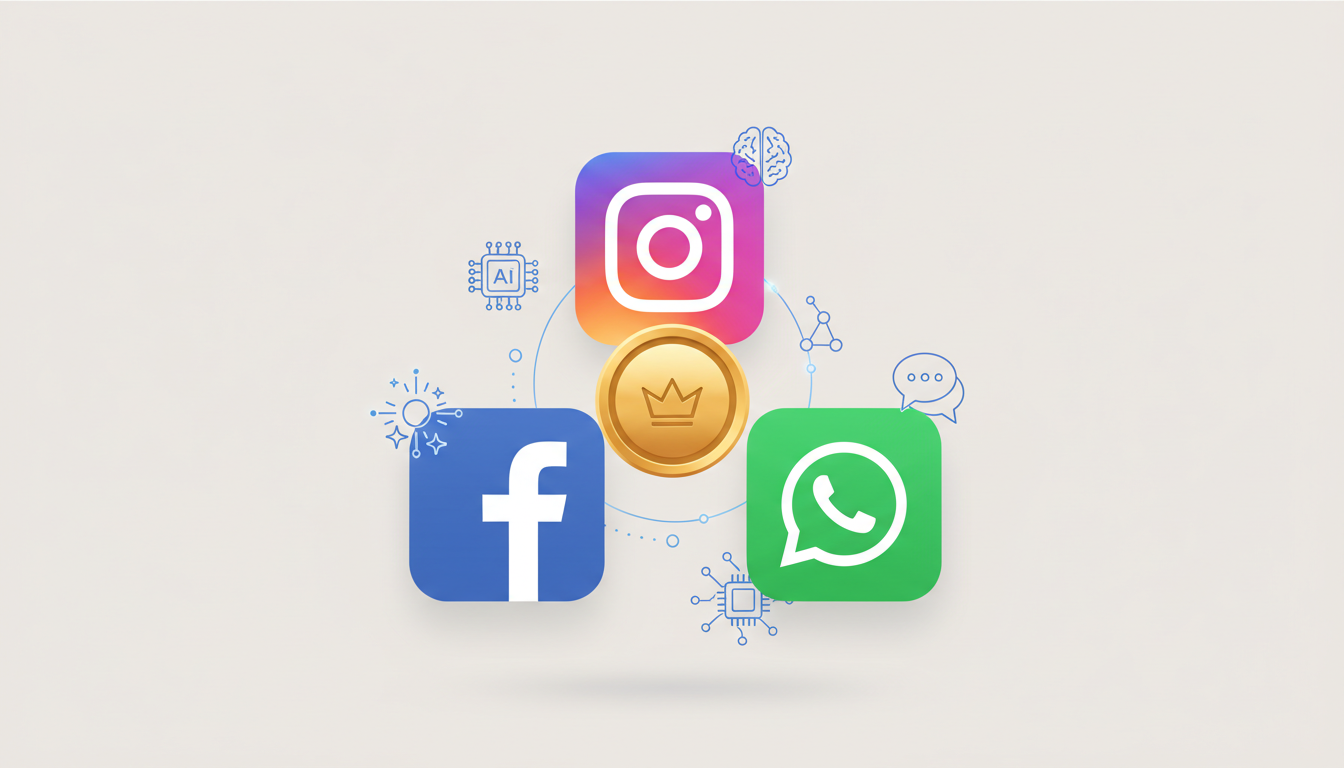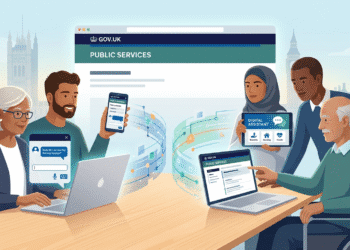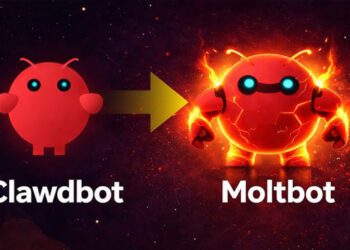The browser wars just got a whole lot smarter. OpenAI has officially unveiled ChatGPT Atlas, marking the company’s bold entry into the increasingly competitive AI-powered browser market. This isn’t just another web browser with an AI chatbot tacked on it’s a complete reimagining of how we interact with the internet.
A New Contender Enters the Ring
On October 21, 2025, OpenAI CEO Sam Altman took to social media to tease what he called “a new product I’m quite excited about!” The announcement came through a mysterious video showing browser tabs on a white screen, building anticipation for a livestreamed demo that would introduce the world to ChatGPT Atlas.
The launch represents OpenAI’s most aggressive move yet to challenge Google’s dominance in how people access and interact with information online. With Google Chrome commanding over 3 billion users worldwide, OpenAI faces an uphill battle. But the company has one major advantage: a 200-million-strong ChatGPT user base that’s already comfortable living inside its ecosystem.
What Makes Atlas Different?
ChatGPT Atlas isn’t trying to be just another browser. It’s fundamentally rethinking what browsing should feel like in the age of AI. According to The Verge, ChatGPT is the “beating heart of Atlas,” seamlessly integrated into every aspect of the browsing experience.
The browser is available globally on macOS starting today, with Windows, iOS, and Android versions coming soon. OpenAI says the product will be available to all free users at launch, though some premium features remain exclusive to paid subscribers.
The Split-Screen Experience
One of Atlas’s most distinctive features is its default split-screen layout. Whenever you click a link from a search result, the browser displays the webpage alongside a ChatGPT transcript. This “companion” approach means you’re never browsing alone the AI is always there, ready to help.
You can ask ChatGPT to summarize lengthy articles, explain complex concepts, translate foreign languages, or compare products without ever leaving the page. And if you find the split-screen distracting? You can turn it off and browse traditionally.
Context is Everything
What truly sets Atlas apart is its ability to understand context. The browser features an “Ask ChatGPT” sidebar that can “see” the page you’re on when you allow it. This seemingly simple feature eliminates one of the biggest friction points in modern web browsing: constantly copying and pasting text or dragging files into ChatGPT to provide context.
Digital Trends reports that Atlas delivers “conversational answers compiled from multiple sources in real time” instead of just returning a list of links. It’s a fundamentally different approach to search one that feels more like having a knowledgeable assistant than querying a database.
Memory That Learns
Atlas introduces something called “browser memories.” The system remembers what you read and search, syncing across devices for a more personalized, continuous browsing experience. As you type in forms, emails, or documents on the web, ChatGPT can offer suggestions to help you write more effectively.
During the livestream, employees demonstrated a feature called “cursor chat,” which allows you to select text from an email and click a button to have ChatGPT tidy up the sentence in-line. It’s the kind of seamless integration that makes AI feel less like a separate tool and more like a natural extension of your workflow.
Agent Mode: The Game Changer

Perhaps the most groundbreaking feature of Atlas is its “Agent Mode.” This capability allows the browser to take on multi-step tasks and complete them autonomously with your permission, of course.
According to AI Tools Club, Agent Mode can “research a topic, compile the key findings into a document, and then email it to a colleague.” It can book restaurant reservations, fill out forms, shop for flights, and even edit documents you’re working on.
Adam Fry, OpenAI’s product lead for ChatGPT Search, explained during the livestream that “in Atlas, ChatGPT can now take actions for you… It can help you book reservations or flights or even just edit a document that you’re working on.”
Safety First
OpenAI acknowledges that giving an AI agent this much autonomy comes with risks. The company has implemented explicit guardrails: the agent cannot run code in your browser, download files, install extensions, or access other apps. It also pauses on sensitive sites.
Agent Mode is launching in preview and is currently available only to ChatGPT Plus, Pro, and Business users. OpenAI says it has “red-teamed the system extensively,” publishing a system card and committing to ongoing security patches. The company specifically mentions concerns about hidden instructions on webpages that could potentially manipulate the agent.
Privacy and Control
In an era of growing privacy concerns, OpenAI is making bold promises about user control. The company states that users have “complete control over their privacy settings: ‘You control what it remembers about you, how your data is used, and the privacy settings that apply while you browse.'”
The Guardian reports that Atlas users are automatically opted out of allowing their browsing data to be used to train ChatGPT models. Users can view and manage the browser’s “memories” in settings and can open incognito windows that log them out of ChatGPT entirely.
However, there’s a nuance worth noting. While Atlas may not store exact copies of content you search for, if you’re opted into “Browser memories,” ChatGPT “will remember facts and insights from your browsing.” The company hasn’t fully clarified how browsing information might be shared with third parties.
The Team Behind Atlas
The livestream featured an impressive roster of OpenAI talent. Besides CEO Sam Altman, the presentation included Ben Goodger, a staff member who previously helped develop both Google Chrome and Mozilla Firefox. His experience building two of the world’s most successful browsers brings serious credibility to the Atlas project.
Other team members included Will Ellsworth, who works on post-training research; Adam Fry, the product lead for ChatGPT Search; Ryan O’Rouke, an interface designer; Justin Rushing, who previously worked at Apple; and Pranav Vishnu.
During the event, Altman emphasized his vision for the future: “The way that we hope people will use the internet in the future… the chat experience in a web browser can be a great analog.” He added, “This is just a great browser all-around it’s smooth, it’s quick, it’s really nice to use.”
The Competitive Landscape
OpenAI isn’t the first company to recognize that AI could revolutionize web browsing. The AI browser wars have been heating up for months.
In July 2024, OpenAI announced a prototype of its search engine, dubbed SearchGPT. But competitors weren’t sitting idle. This summer, Perplexity launched its buzzy Comet browser, which offers an “answer engine” instead of a traditional list of search results. Comet can scan all your open tabs, summarize videos, declutter your email inbox, and even make purchases on Amazon.
In September, Google announced it would more deeply embed its Gemini AI assistant into Chrome, with plans to allow Gemini to handle “tedious tasks” like grocery shopping, scheduling appointments, and booking reservations. Microsoft has also been building an AI-powered Copilot Mode into its Edge browser.
The Browser Company, which created the innovative Arc browser, was acquired by Atlassian for $610 million earlier this year. They’ve been working on Dia, another AI-first browsing experience.
TechCrunch notes that while AI-powered browsers are “quite buzzy in Silicon Valley today,” their impact in the broader world remains limited. The real test for Atlas will be whether it can break out of the tech bubble and appeal to mainstream users.
Technical Foundation
Like most modern browsers, Atlas is expected to run on Chromium, the same open-source engine that powers Chrome, Microsoft Edge, and Opera. This choice makes sense it ensures compatibility with existing web standards and gives OpenAI a solid foundation to build upon.
The browser includes intelligent tab management, addressing one of the most common pain points for heavy internet users. You can manage your tabs using natural language, asking Atlas to open, close, reopen, bookmark, or revisit any of your tabs without clicking through menus.
Market Implications
The announcement sent immediate ripples through the stock market. The Guardian reports that shares of Google stock fell 4% immediately after OpenAI’s announcement, as investors feared a threat to Chrome’s dominance.
This reaction might seem premature given Chrome’s massive user base, but it reflects a broader anxiety about how AI could disrupt established tech giants. Google’s search business generates the majority of its revenue, and an AI-powered browser that provides direct answers instead of search results could fundamentally undermine that business model.
The Road Ahead

Atlas is rolling out first for macOS users, with a Windows release expected soon after. OpenAI says this staggered launch will help fine-tune stability and gather feedback before a wider rollout.
To get started, users can install Atlas and run the setup to import bookmarks, saved passwords, and history from their current browser. This smooth onboarding process is crucial people won’t switch browsers if it means losing years of accumulated data and preferences.
Nick Turley, Head of ChatGPT, told TechCrunch that he’s inspired by how browsers have redefined what an operating system can look like. “Browsers have revolutionized the way people get work done online, and he thinks ChatGPT is a similar phenomenon,” the outlet reported.
What This Means for Users
For the average person, Atlas promises to cut through the clutter of modern browsing. No more juggling ten tabs or losing track of what you were reading. Instead, you get a co-pilot that understands what you’re trying to do.
It can explain a news story while you read it, summarize a research paper in seconds, or fill out forms and plan a trip all without leaving the page. The browser remembers where you left off, making the web feel more like a conversation than a chore.
Digital Trends emphasizes that Atlas “could fundamentally reshape how we use the web.” For years, browsers have been passive windows into the internet, tools that waited for users to click, type, and search. Atlas flips that dynamic entirely by embedding an intelligent assistant that can think with you while you browse.
The Bigger Picture
OpenAI’s move into browsers represents more than just product expansion it’s a strategic play for the future of how we access information. As AI becomes more capable, the traditional model of search engines returning lists of links feels increasingly outdated.
Why should you have to click through multiple websites, read several articles, and synthesize the information yourself when an AI can do that work for you? This is the fundamental question driving the AI browser revolution.
However, this shift also raises important questions. If AI systems mediate our access to information, how do we ensure they’re accurate and unbiased? How do content creators get credit and traffic when AI provides direct answers? These are challenges the entire industry will need to grapple with.
Early Reactions and Skepticism
While the tech community has shown excitement about Atlas, there’s also healthy skepticism. Early versions of web-browsing AI agents have been hit-or-miss. TechCrunch’s testing found that “while Perplexity’s Comet and OpenAI’s ChatGPT agent work well for simple tasks, they struggle to reliably automate the more cumbersome problems users might want to offload to an AI system.”
The question is whether Atlas can deliver on its ambitious promises or whether it will join the long list of overhyped AI products that underwhelm in practice.
Conclusion: A New Chapter in Browsing

ChatGPT Atlas represents OpenAI’s vision for the future of web browsing one where AI isn’t just a tool you use but a companion that helps you navigate the vast ocean of online information. Whether it succeeds in challenging Chrome’s dominance remains to be seen, but one thing is clear: the browser wars are no longer about speed or design. They’re about which AI understands you best.
As AI Tools Club aptly puts it, “ChatGPT Atlas isn’t a browser with an AI chatbot stuck to it; it’s a browser that treats the page, your task, and the model as one workspace.”
For users willing to embrace this new paradigm, Atlas offers a glimpse of what browsing could become: more intuitive, more personalized, and more powerful. For those who prefer traditional browsing, the question becomes how long they can resist before the convenience of AI assistance becomes too compelling to ignore.
The launch of Atlas marks not just a new product, but potentially a new chapter in how humanity interacts with the internet. And that’s a story worth watching unfold.
Sources
- The Verge – OpenAI’s AI-powered browser, ChatGPT Atlas, is here
- Digital Trends – ChatGPT Atlas wants to change how you surf the web forever
- AI Tools Club – Meet ChatGPT Atlas: OpenAI’s New AI Browser with Agent Mode
- TechCrunch – OpenAI launches an AI-powered browser: ChatGPT Atlas
- The Guardian – ChatGPT Atlas: OpenAI launches web browser centered around its chatbot









Comments 3